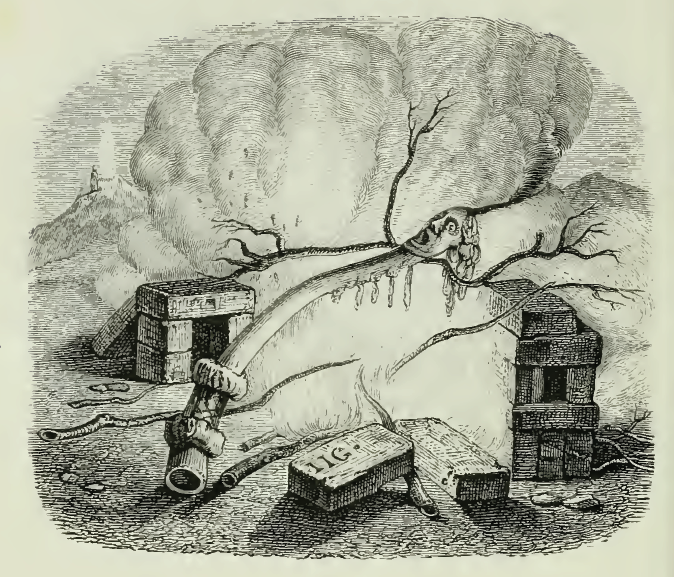126. Of the Wax Desiring Hardness
The wax grieved that it was soft and made penetrable to every the lightest blow. But seeing the bricks made of clay, softer by much, that they came to such great hardness by the heat of the fire that they lasted many ages, it cast itself into the fire that it might obtain the same hardness, but presently being melted in the fire it was consumed.
Moral. This fable advises that we desire not what is denied to us by nature.

127. Of an Husbandman Affecting Warfare and Merchandise
A certain husbandman bore it ill that he daily stirred up the earth nor arrived to great riches by his perpetual labors. When he saw some soldiers who had so increased their estate in the war that they went well clad and fed with sumptuous dainties, led a happy life. Therefore his sheep being sold with his goats and oxen, he bought horses and arms, and went to the war; where, when it was fought unsuccessfully by his general, he not only lost what things he had, but also received many wounds. Wherefore, war being condemned, he resolved to follow merchandise, as in what he thought there was greater gain, and less labor. Therefore his farms being sold, when he had filled a ship with wares, he began to sail, but when he was in the deep, a great tempest having arisen, the ship was sunk and he with the rest who were in it, all perished to one.
Moral. This fable advises that everyone ought to be content with his lot, seeing misery is ready everywhere.
128. Of an Ass and a Jester
An ass, bearing it unkindly that a certain jester was honored and clothed in fair garments because he made great sounds in his belly, went to the magistrates desiring that they would not honor him less than the jester, and when the magistrates admiring asked why he thought himself so worthy of honor, he said, "Because I send out greater noises with my belly than the jester, and those without stench."
Moral. This fable reproves those who expend their monies on the lightest things.
129. Of a River Provoking his Spring with Reproaches
A certain river provoked his spring with reproaches as sluggish because he stood immoveable nor had any fish, but commended himself very much because he bred the best fishes and crept through the valleys with a pleasant murmur. The spring, angry at the river as ungrateful, kept back the waters. Then the river, deprived both of the fishes and the sweet sound, vanished away.
Moral. This fable marketh those who arrogate the good things which they do to themselves, and do not attribute them to God from whom, as from a large fountain, our good things proceed.
130. Of a Wicked Man and the Devil
A certain wicked man when he had committed many wickednesses and, often being caught and shut in prison, was detained very closely with a watchful guard, implored the help of the devil who oftentimes was with him and freed him out of many dangers. At length the devil appeared to him, again taken and imploring the usual help, having a great bundle of shoes worn out upon his shoulders, saying, "Friend, I am not able to be a help to thee longer, for I have travelled through so many places for freeing thee that I have worn out all these shoes and, moreover, no money remains to me with which I may be able to get others, wherefore thou shall perish."
Moral. This fable advises that we should not think our sins will be always unpunished.
No comments:
Post a Comment
Comments are limited to Google accounts. You can also email me at laurakgibbs@gmail.com or find me at Twitter, @OnlineCrsLady.